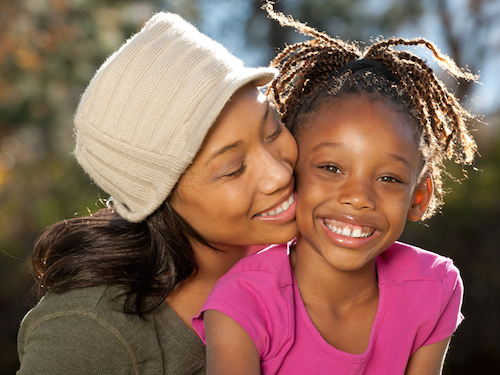Six- and seven-year old children go through a tremendous number of changes! Take a peek at some of the major achievements of this age, and then click on the associated hyperlinks to get a more in-depth view of the many things that children this age are learning!
By the end of this period, your child should be able to:
- Understand the conservation of number—where the number of pennies of two equal piles stays the same, even if you spread out one row to be wider than the other. (cognitive development)
- Map signs and symbols (letters and numbers) onto concepts (to know that -th is pronounced /th/ or + means to add). (academic skills)
- Read basic texts independently (by the end of first grade, your child should be able to read books at least at the reading level of Henry and Mudge by Cynthia Rylant). (language & literacy)
- See things in a black-and-white “fair-rules-all” manner. (social development)
- Engage in fanciful dramatic play. (creativity development)
Will probably be able to:
- Distinguish fantasy from reality and describe similarities between two objects. (cognitive development)
- Begin to apply scientific thinking while formulating rudimentary hypotheses to try and answer questions about his world (e.g., suggest having a snowball race down the hill to see if smaller or bigger snowballs are faster). (academic skills)
- “Get” jokes and enjoy telling them, express ideas clearly, and make more extended comments on situations and events. (language & literacy)
- Use words to describe defeats and disappointments, over physical outbursts or aggressions. (social development)
- Seek out subject area expertise and increased challenge (prerequisites for creative thinking). (creativity development)
May possibly be able to:
- Take another person’s perspective or consider various outcomes to a problem independently. (cognitive development)
- Apply understanding of reciprocal functions from addition and subtraction to multiplication and division. (academic skills)
- Read chapter books and write stories with various sentence types across multiple pages. (language & literacy)
- See both sides of an issue, resolve friendship issues while maintaining both points of view. (social development)
- Apply knowledge across situations and show generalization of learning between topics. (creativity development)


